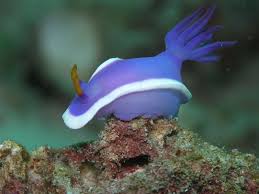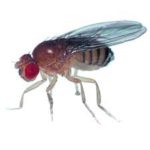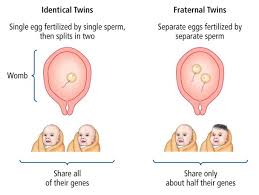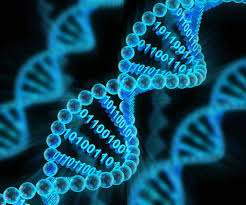I just got back from a two-day meeting on animal models of addiction. And here’s what I learned: animals way way down the evolutionary ladder also like opioids and psychostimulants. And flies like alcohol. That should make us feel less lonesome.
I was asked to be the keynote speaker for the meeting, because the organizers thought that animal researchers should learn more about human addiction. Well, it was a nice idea, I got a free trip to Chicago, but my work may just be too distant from what these folks think about. They study “addiction” — or  more simply drug seeking — in, for example, crayfish, sea-slugs, something called zebrafish, and the common fruit fly (drosophila). Seriously. They listened to what I said about human addiction. I stressed cognitive-emotional factors like “now appeal” and “ego fatigue”, I stressed how difficult it is to make good decisions in stressful environments, especially when memory serves up powerful associations between getting high and relief. I talked about the symbolic appeal that intensifies addiction for us humans. How we’re addicted to what the drug means to us more than to the physiological change it produces. They listened, but I don’t think they got it. And when it came to my spiel about the internal dialogue, the “addict self” and so on, it’s like we were on different planets.
more simply drug seeking — in, for example, crayfish, sea-slugs, something called zebrafish, and the common fruit fly (drosophila). Seriously. They listened to what I said about human addiction. I stressed cognitive-emotional factors like “now appeal” and “ego fatigue”, I stressed how difficult it is to make good decisions in stressful environments, especially when memory serves up powerful associations between getting high and relief. I talked about the symbolic appeal that intensifies addiction for us humans. How we’re addicted to what the drug means to us more than to the physiological change it produces. They listened, but I don’t think they got it. And when it came to my spiel about the internal dialogue, the “addict self” and so on, it’s like we were on different planets.
 Regardless, I learned a lot from them. For example, I learned that zebrafish larvae (baby fish that look like seahorses) like opioids. These little guys will swim up near the surface of their tank — which is intrinsically aversive to
Regardless, I learned a lot from them. For example, I learned that zebrafish larvae (baby fish that look like seahorses) like opioids. These little guys will swim up near the surface of their tank — which is intrinsically aversive to  them — to get Vicodan. Yes, Vicodan…through their feeding tube. And I learned that fruit flies will endure 120 volts of electricity to get a nip of alcohol. Yet they won’t do it for sugar. Crayfish get stoked on cocaine and race around recklessly with their claws outstretched. Like, seriously! I also learned that dopamine is the neurochemical by
them — to get Vicodan. Yes, Vicodan…through their feeding tube. And I learned that fruit flies will endure 120 volts of electricity to get a nip of alcohol. Yet they won’t do it for sugar. Crayfish get stoked on cocaine and race around recklessly with their claws outstretched. Like, seriously! I also learned that dopamine is the neurochemical by  which lower animals identify and pursue rewards. They may even get a dopamine burst when they acquire drug rewards. I could give you more details, but in sum, it’s pretty simple: opioids and psychostimulants cause physiological changes that we interpret as “good” or “rewarding” — “we” being animals from flies and fish to humans. And we do this using the same neurotransmitters — dopamine and serotonin — across species that evolved hundreds of millions of years apart! It’s no accident that heroin and meth are the most addictive drugs we know of. We’re in good company.
which lower animals identify and pursue rewards. They may even get a dopamine burst when they acquire drug rewards. I could give you more details, but in sum, it’s pretty simple: opioids and psychostimulants cause physiological changes that we interpret as “good” or “rewarding” — “we” being animals from flies and fish to humans. And we do this using the same neurotransmitters — dopamine and serotonin — across species that evolved hundreds of millions of years apart! It’s no accident that heroin and meth are the most addictive drugs we know of. We’re in good company.
But how do we make sense of the fact that gambling, porn, internet use and sports can also be highly addictive? It seems we somehow have to draw a line from the physiological changes that opioids and stimulants provide, up to the level of “I like this — I want more!” and then back to all kinds of addictive behaviours as well as drugs themselves. Then maybe we can figure out how behavioural addictions — in fact all addictions — really work.
What about the genetics of addiction?
I also learned more about the genetics of addiction. For years I’ve been arguing, much like Maia Szalavitz, that the oft-cited 50% heritability of addiction is mostly due to personality traits. There’s certainly no gene or gene cluster that predicts addiction, though there are genes that can make one more or less sensitive to specific substances, like opioids (the dynorphin receptor gene) and alcohol (which is more complicated). Yet personality traits, which can be genetically shared, predict addiction itself. The most clear-cut example is impulsive personality. More impulsive people are more likely to try drugs, or drink (or drink more) at younger  ages, than others. So they and their identical twins (the basis for computing genetic effects) are more likely to become addicted. An introverted or anxious disposition also predicts addiction, for obvious reasons. And, as Maia Szalavitz says about herself, I think I score pretty high on both of these (seemingly opposite) traits. So…my odds started off a little higher than average.
ages, than others. So they and their identical twins (the basis for computing genetic effects) are more likely to become addicted. An introverted or anxious disposition also predicts addiction, for obvious reasons. And, as Maia Szalavitz says about herself, I think I score pretty high on both of these (seemingly opposite) traits. So…my odds started off a little higher than average.
Yet I’ve always emphasized environmental effects. They are so huge and so obvious. From Gabor Maté’s oppressed native populations, to Rat Park, to the ACE studies…yeah, it’s pretty obvious that difficult or stressful or oppressive environments predict addiction. And most of my clients who’ve struggled with addiction have had really shitty times during their childhood or adolescent years. Young people adapt to abuse (physical, emotional, or sexual) or neglect (like rejection by a parent or step-parent) by trying to make themselves feel better with substances. It’s called “self-medication.” It’s not rocket science.
 But here’s what I learned about genetics. Over the history of genetic research, labs could only look at gene-outcome effects one by one. That’s not the way genetics operates. With the huge explosion of computer technology in the last few years, scientists can now look at complex interaction effects. These include, not only genes, but the parts of the DNA that regulate networks of genes. Now things get complicated. I already knew that trauma or early adversity can “set” changes in motion which last a lifetime — called “epigenetic” effects. For example, punitive parenting can set your amygdala on high alert for the rest of your life — i.e., induce trait anxiety. These changes take place at the DNA level, but — and it’s a huge “but” — they are driven by environmental impacts. So, again, environment wins out over inheritance. What I didn’t get until last week is the complexity of the interactions between these environmental impacts and the genes we inherit.
But here’s what I learned about genetics. Over the history of genetic research, labs could only look at gene-outcome effects one by one. That’s not the way genetics operates. With the huge explosion of computer technology in the last few years, scientists can now look at complex interaction effects. These include, not only genes, but the parts of the DNA that regulate networks of genes. Now things get complicated. I already knew that trauma or early adversity can “set” changes in motion which last a lifetime — called “epigenetic” effects. For example, punitive parenting can set your amygdala on high alert for the rest of your life — i.e., induce trait anxiety. These changes take place at the DNA level, but — and it’s a huge “but” — they are driven by environmental impacts. So, again, environment wins out over inheritance. What I didn’t get until last week is the complexity of the interactions between these environmental impacts and the genes we inherit.
 One of the scientists speaking at the conference, Daniel Jacobson, showed us that he can predict fine gradations of autistic behaviour, by data crunching (on the world’s fastest supercomputer!) hundreds of thousands of genetic variables interacting with each other and with thousands of environmental variables. So — once we get better at quantifying environmental impacts (like isolation, abuse, bullying) we may indeed be able to predict addiction, not from genes themselves but from the interplay between gene networks and environmental challenges.
One of the scientists speaking at the conference, Daniel Jacobson, showed us that he can predict fine gradations of autistic behaviour, by data crunching (on the world’s fastest supercomputer!) hundreds of thousands of genetic variables interacting with each other and with thousands of environmental variables. So — once we get better at quantifying environmental impacts (like isolation, abuse, bullying) we may indeed be able to predict addiction, not from genes themselves but from the interplay between gene networks and environmental challenges.
Still, even with all the fancy computing power in the world, I think that environmental challenges will remain impossible to quantify. As I argued with this 
 dedicated scientist at the reception, isolation in Sweden and isolation in New Jersey are entirely different things. The gradations in environmental impact are close to infinite. He disagreed, said it’s a matter of time, but I guess the jury’s still out.
dedicated scientist at the reception, isolation in Sweden and isolation in New Jersey are entirely different things. The gradations in environmental impact are close to infinite. He disagreed, said it’s a matter of time, but I guess the jury’s still out.
How to conclude? Two things. First, addictive drugs are addictive because of what they do to the nervous system of animals, lots of kinds of animals, not just us. But we humans build all this symbolic stuff — like need fulfillment, warmth, the sense of being in control — on top of that primal impact. Second, we may never be able to accurately compute who becomes addicted, but your chances surely derive from what you were born with (inheritance) interacting in hugely complex ways (development) with the sting of environmental misfortune.
Addendum: I realize this post covers two seemingly different topics. Yet they’re deeply connected. Our genes are the basis of our humanity, but we still carry these mechanisms of reward-seeking that go back hundreds of millions of years. After all these aeons of evolution, we still haven’t been able to discard the code for these mechanisms. We still need them. They’re that basic. Think about it.
 Informed by unparalleled neuroscientific insight and written with his usual flare, Marc Lewis’s The Biology of Desire effectively refutes the medical view of addiction as a brain disease. A bracing and informative corrective to the muddle that now characterizes public and professional discourse on this topic.” —Gabor Maté, M.D., author of In The Realm of Hungry Ghosts: Close Encounters With Addiction
Informed by unparalleled neuroscientific insight and written with his usual flare, Marc Lewis’s The Biology of Desire effectively refutes the medical view of addiction as a brain disease. A bracing and informative corrective to the muddle that now characterizes public and professional discourse on this topic.” —Gabor Maté, M.D., author of In The Realm of Hungry Ghosts: Close Encounters With Addiction
Great blog post as always, Marc.
In response to your query around the process addictions you mention, Perhaps we become intensely attracted to our own dopamine despite the original cause for its decreased and then increased levels. With drugs the increase happens without effort (except the one involving going to the dealer, or to the next room, or walking to the off-license to buy the alcohol ). I am currently on month 20 of what my doctors are concluding is ME/CFS. I believe it’s PAWS causing these severe symptoms including post exertional malaise and unrelenting fatigue which disappears with certain rewarding activities but returns again after wards. I don’t crave drugs any longer, but I know without any shadow of a doubt that anything to raise my dopamine levels would lessen the fatigue. I await the day my body goes back into homeostasis (for want of a better word).
Hi Rochelle. I also think it’s something like that. We love the feeling of getting somewhere, approaching our goal, the thrill of the hunt (as Maia Szalavitz calls it) more than we love what follows. But it isn’t only that. The thrill MEANS something. We can’t help but attach significance to every feeling, especially very strong feelings. So it can mean I’m almost exactly where I want to be. Or I’m finally going to feel in control after being kicked around by the hardships in my life. Or…etc, etc.
Yes, drugs get you there efficiently, process addictions through certain pursuits. But their advantage (or disadvantage) is that they already scaffold a small set of possible meanings. For example, porn is incredibly meaningful for porn addicts. They imagine themselves in the scene, being dominant, or sexual superstars, or whatever. That’s why it’s so problematic. It disrupts the meanings people attach to “normal” sex, which is especially serious for young people who have no idea.
Thanks for your thoughtful comment. I hope things improve for you soon. Tai Chi worked for me when I was getting off drugs…maybe it reaches below “excitement” to a deeper level of energy, i.e., Chi.
Quantifying environmental changes seems like a long-shot to me too.
Hi Marc
I wonder where psycho-behavioral stuff like “reward prediction error” and “extinction burst” play into this? Isn’t the most overarching overgeneralization about addictive behavior that we share with all our friends in the animal kingdom— regardless of whether “addiction“ is a disease or a choice or a character defect, etc..— is that it is first and foremost a compensatory survival behavior…whether you’re a sea slug or a lonely septuagenarian.
HI Matt, good to see you here again. I can’t really say if it’s a survival behavior. But it certainly follows from feelings that belong in the repertoire of survival-oriented feelings. Both safety from threat (opioids) and the thrill of the hunt (coke, meth) show up in these repertoires, probably for all mammals. As to what the reptiles and below actually feel…who knows? They probably feel nothing we’d recognize as feelings. But evidently dopamine still gets them to steer toward what they need and to bing them when they get there.
It has been said many many times that many active addicts operate on what may be deemed ” a reptilian-brain”. One focus to seek and achieve reward despite any consequences. There is no desire for “delay” in gratification, I want what “I” want when I want it. There is a real primitive nature that appears to be operative, again, from a reptilian brain perspective.
too often scientists operate so far away from the reality that is the day to day struggle of the large percentage of humans who are not happy with their lot that it laughable. who cares that Zerba fish like morphine, how does that help me in my day to day work with those that see no hope in waiting for tomorrow when all they desire is a retreat from the nothingness of their today. too often the theory is too far from the reality on the street and we continue this focus upon the deficiency of the individual when i believe more and more that, as Hari says in his new book, its about society not the individual – it isn’t about dopamine but about connection and meaning and normal human response to stress and as Matt says a survival instinct inherent – yes these things produce dopamine but focusing upon a chemical inside and out misses the real issues giving society and governments reason to ignore the harder road
Terry, I agree that the way to overcome addiction is to connect with others (a la Hari) and to even out the inequities and worse in our social fabric. But that doesn’t mean the animal studies and chemical information is useless, not at all. I think it’s very informative that these feelings we have, that we desperately acquire from drugs because there’s no other way we can get them (e.g., safety, mastery), follow a long lineage of animal needs and goals. To me, this grounds the feelings — makes sense of what drugs do.
I agree that they don’t point to a way to help those who suffer in our fucked up social systems. I’d even go as far as saying that drugs reduce us, in some sense, to a less human level, because they are so specific to the needs and goals we share with animals going back hundreds of millions of years.
Marc – bless you…
you, Gabor, Johann, Bruce Alexander, the ACES study, my social neuroscience friend Mark Brady, heck, now even Russell Brand for goodness sake, have helped to shine a light on what some of us have known for awhile but didn’t have the academic cred or the visibility or whatever to assert: that what we call addiction is complex; it’s multi-faceted and it’s got layers, too.
And we are meaning-making beings.
This ability, this propensity we have to attach meaning to things, it can serve us, it can kill us, it can make us feel like we’re dead, or like we want to be dead, and it can help us come alive.
For me, things shifted with two things: adequate – no, ABUNDANT support – and good guidance. Plenty of that, too. Honestly, it took a freaking village of support for me to kick and stay free. I just kept stacking support on support. There were times when I just wanted to stay home and rest, but I needed support. I didn’t want to need it, but at some point I wanted to be free more than I wanted to live with the old status quo, so I just kept getting out and finding ways to get my needs met.
And damn, trauma makes us wary. It makes us question our judgment, and feel uncomfortable as hell reaching out; it makes us feel like idiots, weaklings and weirdos. I’d ask myself, What the hell is the matter with me that I need THIS much support?!
Nothing was wrong with me. I’d survived trauma, and I wanted more than surviving, because I could see that the things I’d been doing to survive were now killing me, stealing my life. They didn’t work anymore. So it was time for me to get to work, and find the others.
I never expected to live this long when I was in active addiction, nor did I think, once I’d begun working in the field of mental health and in addiction treatment, that I’d live to see the field changing the way it is now.
Thank you for being part of the growing chorus giving voice to this broader awareness. You’ve helped me to own and express what I know to be true, and to know that things can and do change.
Just a few thoughts sparking as I read your post and reflect on the field.
Like you, like so many, I beat some odds. It’s great to be alive.
Speaking of meaning-making, your comment is bursting with it. Our capacity — no, our need — to make meaning is, as you say, the entryway to both heaven and hell. All that support you got, when you break it down, sounds like you were bathing in streams of meaning that finally drove out the self-doubt and terror, replaced them with understanding? with an awareness that other people can love and support you? Indeed the desperate meanings that get driven in so deeply by years of addiction require powerful, enduring currents of alternate meanings to wake us up to the fullness of life well lived.
test
I appreciate seeing the meaning you’ve suggested here, Marc. It helps me to clarify.
To the best of my understanding, what I was bathing in was the feeling of safety that came from the steady, reliable presence of others who shared enough common experience, longing and pain to come together in support of their own healing as well as my own. Feeling embraced, with arms and with eyes, that said, You belong here and so do we, and we are so glad to see you. Keep coming back.
There’s a felt sense I have when I’m in a place that’s safe and embracing in that way. It’s visceral, beyond words, so then I go looking for words to describe it to another who has not yet felt it, or felt it where I do.
And I put it into words so that I, too, can then better cultivate the same for those who wonder about it, or who wander in seeking something and maybe finding it there, as I have.
This is why I’ve found my way back to active engagement in 12 Step fellowship, and am willing (thrilled, actually) to be one of the people who is slowly shifting the way we talk about these things in the rooms. Bringing bits of Neuroscience 101 to my shares. Talking about the impact of trauma on what we have called “addiction” and “mental illness” and “crime” and “character defects” and more in our world.
For me, 12 Step fellowship has enough of what I’m seeking that I’m willing to show up, one day at a time, and help shape and support conversations that help people see that they’re not defective. Not at all. We’re resourceful, and we’re evolving, and learning ways to shift from meeting needs in ways that steal our lives, our vitality, to ways that increase our own vitality as well as the vitality, the joy of others.
Streams of meaning here;) I look forward to hearing yours.
I read somewhere that some people are just born with fewer dopamine receptors than other folks. If that’s true, add that to environmental impacts and well, here we are.
I would call that a biological prior…if they’re *born* that way….which corresponds with Kenneth Blum’s idea of a reward deficiency syndrome. However, given epigenetic effects, you might turn off the genes that make dopamine receptors (or manufacture dopamine) because your mother slapped you when you acted too happy. I’m not kidding. I’ve got a client who could fit that model.
Thank you for this post. It is very interesting and educational.
I do think that the intertwining nature between genetics and environmental factors is the key to how different people (maybe even different species) respond to addiction. Everything makes sense to me. The extent of impulsiveness in our personality seems rather vague though – do you think maybe there is an environmental aspect to how our personalities develop as we age? It’s really difficult to draw the line between whether something is environmental or genetic. Is it ever possible to categorize trait to only one of them? One thing I do not understand is the cause of introverts being more prone to addiction. Is it to do with the common stereotype of introverts lacking social connections/relationships? Since we are social animals, does the lack of human connection cause us to seek pleasure elsewhere?
Would the susceptibility to addiction be the same among different species in that case? One may argue animals from different kingdoms have less “personality programming” in genetics than others – does that mean that they are less susceptible to responding to addiction? Or, do you think it is always down to the molecular level – once you make that initial decision to TRY the drug, you are exposing yourself to the same level of chemical response as any other person?
So many questions. First, yes, I’m quite sure personality develops in childhood and adolescence through gene-environment interactions. It’s not just set in stone by your genes. This would include impulsive and introverted styles. Loneliness in childhood or adolescence both stems from and feeds back to a predisposition to introversion, thus increasing it. (Steven Pinker once put it this way: genes manufacture the CD player, while the environment provides the CDs. It would be silly to call these independent effects. Of course that metaphor is now outdated, but…I think it helps.) And yes, exactly as you say, introverts aren’t as adept at making social connections, which can lead to depression, which of course increases the odds of drug use and addiction. Also isolation just makes it easier to become addicted…the friend you need is right there in the bottle.
Your final question: it’s my impression that the lower you go down the evolutionary ladder the less you’ll find individual differences or “personality”. Ants behave like ants, and they don’t change much over their life course. So….if a “lower” animal is prone to drug-seeking, then it’s probably a species-wide trait, and most animals of that species will act in a similar way. But this “formula” gets less and less accurate as you move up the evolutionary ladder. Mammals do show individual differences, as we see in dogs and cats. So one collie might like certain drugs while another might prefer a good old-fashioned bone. So…personality DIFFERENCES, by the time we get to humans, are massively important.
Just a FYI:
BBC News features this 3 minute video, ‘Addiction is a response to emotional pain’ on their online front page today:
“Addiction specialist and author Gabor Mate says dealing with past trauma may be the key to breaking addiction.”
https://www.bbc.com/ideas/videos/addiction-is-a-response-to-emotional-pain/p07tnh6m
The fact that addiction is getting front-page space is news unto itself.
I got a lot of useful tips about different parenting styles from this article. Thank you very much!
I have another article about different parenting styles. Maybe you will be interested in it^_^
Parenting Styles – WiserParenting